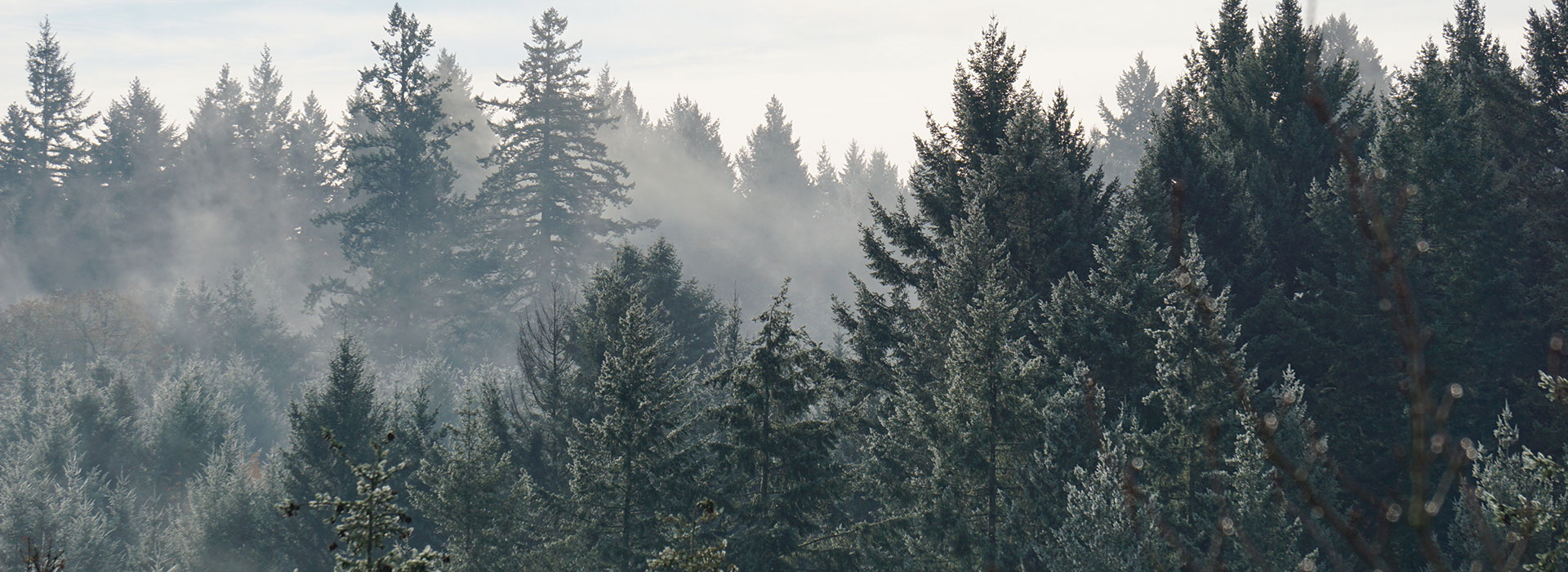From her post as a waterfowl researcher at the Forbes Biological Station in Havana, Illinois, Cheyenne Beach ’16 sees the whole country.
She can look east and recall her time as an AmeriCorps volunteer on Chincoteague Island off the coast of Virginia.
She can look west to the Havasu National Wildlife Refuge along the Colorado River in Arizona, where she worked with endangered species in the fall of 2016.
To the north and south she follows the migratory patterns of waterfowl from Canada to Georgia, from East Texas to the West Indies.
The Waterville, New York, native, who commuted just a dozen miles to attend SUNY Morrisville, has traveled thousands of miles since she collected her natural-world passport in the form of a bachelor’s degree in renewable resources technology from SUNY Morrisville.
Her post-graduation life has also included a stint at the Audubon National Wildlife Refuge in Coleharbor, North Dakota, where she monitored an endangered bird called
the piping plover.
Attending Morrisville on a presidential scholarship, Beach did three stints with AmeriCorps, the national community service organization, while in college. In her junior year, that service sent her to Chincoteague National Wildlife Refuge on Chincoteague Island, Virginia.
Her current job in Illinois allowed her to reconnect with her boyfriend and fellow Morrisville grad Jared Trickey ’16, whose degree in renewable resources technology has taken him down a different path.
“In the last two years, Jared and I have had the most insane experiences,” she said. “But they were mostly separate experiences until now.
“This is the first time we have been able to get a job in the same place together.”
Beach has begun a Master of Science degree program at Western Illinois University while she works full-time in a wood duck telemetry program, banding and releasing wood ducks to track their migratory patterns.
Beach traces everything back to Morrisville, where she recalled bonding with department chair and professor William Snyder — “We were inseparable from the start, and I served as lab assistant in his classes. He had a great impact on my life” — and with professor Brendan Kelly. “All of them (faculty) were awesome in their own ways,” she added.
There is much value in what faculty are teaching students as natural resources careers become more timely and relevant in the wake of climate change, which poses a threat to people, animals and the environment. “The irony is that with all the natural disasters, climate change means that governments have to spend more money
on staffing people who have the skills we are teaching,” Kelly said.
Morrisville’s Environmental Science Department is thriving in this time of change, said Kelly, himself a ’93 graduate of Morrisville’s natural resources conservation
program who went on to earn a bachelor’s degree at SUNY College of Environmental Science & Forestry and a Master of Science degree in natural resources from
the University of New Hampshire. “The blessing is to be hands-on. We’re tech-heavy, and that’s what sets us apart.”
Thanks to its close ties to government and industry, the department also gives its students experience with log loaders, surveying equipment, trucks and heavy equipment of all sizes and descriptions, and the state-of-the-art lab equipment they’ll use in the field.
Graduates are using their myriad skills in many ways.
In the summer of 2017, Trickey, from Redwood, New York, was working for the Idaho Department of Fish & Game out of the Lewiston Office, located near Nez Perce, Idaho and the Clearwater National Forest. The region contains the largest wilderness and primitive areas in the lower 48 states, accessible only by foot, boat or horseback, and Trickey’s job as part of a small team was to monitor the wolf population in the mountains.
Wolf management out west is a big deal, Trickey noted. “They place trail cameras in grid formations. They test the DNA of wolf scat to monitor diseases and to determine the age of the animals. They tag them to track their travel. It’s an important part of wildlife management.”
He moved on last April to work as an intern with the Nature Conservancy Gulf Fire Project out of Fort Benning, Georgia, above the Florida panhandle. His job there was to set controlled burns that helped eradicate unwanted hardwoods from the land so that long-leaf pines could again take root in their native soil.
A typical schedule for Trickey included four consecutive 10-hour days (he said they’re more like 12- to 15-hour days) with three days off, working deep in the woods amid steep terrain, extreme temperatures, high altitude and, of course, smoke. The Nature Conservancy site said members have to pass the Work Capacity (Pack) Test at the “arduous” level. That means completing a three-mile deep-forest hike with a 45-pound pack in 45 minutes.
After the start of the thunderstorm season brought his work to an end in Georgia, Trickey moved to Illinois to be closer to Beach and to work on waterfowl research in a
biologist position for Pheasants Forever. He continues to get some fire prevention work there.
While Trickey was in Idaho, Morrisville graduate Ryan Roberti ’14 was working just across the border in Montana in the Lolo National Forest as a forest protection officer for the U.S. Forest Service.
Roberti earned his Associate of Applied Science degree in natural resources conservation at Morrisville.
“I think what drew me to Morrisville was a college booth,” recalled the Elmira Heights, New York, native. “I told my guidance counselor I wanted to work outdoors; someone told me to look up Morrisville. I talked to Brendan [Kelly] a lot. I could see it was going to be real hands-on education, not death by PowerPoint.”
Roberti went on to Unity College near Bangor, Maine, to earn a bachelor’s degree in conservation law enforcement. He worked for the Forest Service from May to
November 2017 as a forest technician, obtaining his Forest Protection Officer (FPO) certification. He worked as an FPO during the devastating fire that started with
lightning strikes on Lolo Peak. At one point, he was on a security detail for Ryan Zinke, secretary of the interior, who surveyed the damage wrought by the fire that destroyed more than 53,000 acres over nine months.
“Everyone thinks that you can just pour water on the (fire) line and it will go out,” Roberti said. “The Lolo fire was a great example of a fire at such a scale that it’s more about trying to control it.”
Most wildfires reach such a scale and move at such a speed that they vaporize moderate quantities of water on contact and resist conventional efforts to extinguish
them, Roberti explained. “Unless you’ve been there, you can’t imagine the heat and the speed of a fire. You have to anticipate it and get ahead of it, then cut off its
sources of fuel,” he added.
Roberti said Lolo was also an example of the growing threat posed by climate change.
Roberti has also worked seasonally at Black Hills National Forest on the border of South Dakota and Wyoming. He traveled to Franklin, North Carolina, to attend the Seasonal Federal Law Enforcement Academy for the National Park Service, where he was certified to work as a law enforcement officer at a national park.
Closer to the SUNY Morrisville campus is Mark Kicher ’16 a Penn Yan, New York, native who received his bachelor’s degree in renewable resources technology. “There are so many opportunities in the natural resources industry, and the program is so diverse,” said Kicher, who worked for a private tree removal company in Massachusetts out of college before returning to his home state to work for the New York State Office of Parks, Recreation and Historical Preservation.
He supervises seasonal staff and prepares the park and campgrounds at Green Lakes State Park near Fayetteville, New York, and at Chittenango Falls State Park,
located just 20 minutes from the Morrisville campus.
He maintains friendships with Kelly, Snyder and the other faculty he came to know at Morrisville. “They gave me all of this,” he said, “and I can say that the classes correlate 100 percent with what I am doing on any given day.”
MARk KICHER ’16
Kicher said he has grown fond of the Northeast, and he expects to start within that region — New England and New York — as his career evolves.
In Illinois, Cheyenne Beach sees a different horizon. “I’ve got big plans,” Beach said. “I want to be a waterfowl biologist, to work on nesting habits, nesting behaviors,
brood behavior. I want to move north, maybe to Canada.
“It’s all out there for me.”


